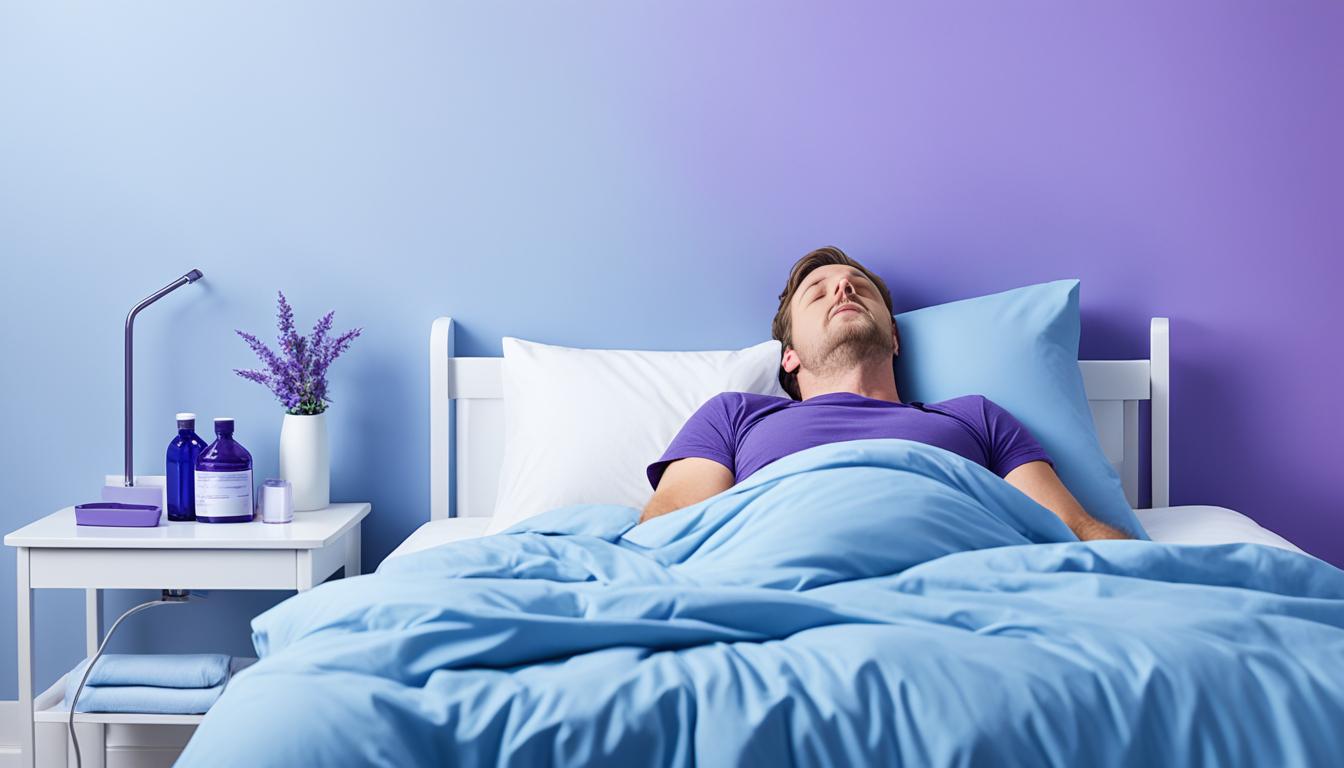Incontinence nighttime, or bedwetting, happens in both kids and adults. People with it wet the bed because they can’t control their urine while sleeping. The reasons for this are not entirely clear. Yet, it might happen due to problems with the bladder, hormones, nerves, or even stress.
To figure out why someone wets the bed, doctors look into their health history and do a check-up. They might suggest small changes in how you live, medicines, or a new kind of treatment called stem cell therapy. This new approach uses stem cells to help fix problems with the bladder. It seems to work well in some cases. But, more studies are needed to be sure how much it helps.
Key Takeaways:
- Incontinence nighttime, or bedwetting, is a common condition that affects children and adults.
- The exact cause of incontinence nighttime is not fully understood, but it is believed to be influenced by various factors such as bladder control issues, hormonal imbalances, neurological disorders, and psychological factors.
- Diagnosis of incontinence nighttime involves a thorough evaluation of symptoms, medical history, and physical examination.
- Treatment options for incontinence nighttime include lifestyle modifications, medications, and in some cases, stem cell therapy.
- Stem cell therapy has shown promise in improving bladder function and reducing nighttime accidents but requires further research to determine its full potential.
Causes and Risk Factors of Incontinence Nighttime
Incontinence nighttime, or bedwetting, has many causes and risks. Knowing these can help find the problem and treat it effectively.
Causes:
1. Bladder control issues: Kids might wet the bed as their bladder isn’t fully grown. They usually get better at holding urine as they get older. Yet in grown-ups, issues like infections, hormone problems, nerve diseases, or physical issues with the bladder can cause this.
2. Psychological factors: Stress, anxiety, and mental health problems can mess up sleep and how the bladder works. This can lead to peeing the bed without wanting to.
3. Medical conditions: Illnesses like diabetes, kidney problems, or prostate troubles in men can make people wet the bed. These health issues affect how well the bladder and the system that controls it work.
Risk Factors:
1. Family history: If parents wet the bed when they were young, their kids might too.
2. Constipation: Being backed up can push on the bladder. This can make the bladder act up and cause bedwetting.
3. Obesity: Being overweight can stress the bladder and muscles around it. This stress can cause problems with controlling the bladder at night.
4. Medications: Some drugs can mess with how well the bladder works. Medications like those for fluid loss, sleep, or mental health can sometimes cause bedwetting.
Causes and risks for bedwetting can be different for everyone. It’s important to see a doctor for a correct diagnosis and the best treatment for you.
Tips for Managing Incontinence Nighttime:
- Establish a regular toileting routine, including emptying the bladder before bedtime.
- Limit fluid intake in the evening, especially caffeinated or sugary beverages.
- Use bedwetting alarms to wake yourself or your child up when the bladder is full.
- Practice pelvic floor exercises to strengthen the muscles involved in bladder control.
- Discuss with a healthcare professional the possibility of using medications or considering alternative treatment options such as stem cell therapy.
| Causes | Risk Factors |
|---|---|
| Bladder control issues (children and adults) | Family history of bedwetting |
| Psychological factors | Constipation |
| Medical conditions | Obesity |
| Medications |
Diagnosis and Treatment Options for Incontinence Nighttime
A healthcare professional will do a deep check if you have incontinence nighttime. They look at your full medical history and do a physical check. They might also test your urine or do other checks. This is to spot any health issues causing the nighttime problem.
After diagnosing, the next step is finding the right treatment. For kids, this might mean setting a regular bathroom schedule or using bedwetting alarms. Adults might try training their bladder, changing what they eat, or doing exercises to strengthen their pelvic floor. Sometimes, doctors give out medicines like anticholinergics or mirabegron to help control wetting.
If the problem is really severe and nothing else works, some consider stem cell therapy. This is when stem cells are put inside the bladder. It’s meant to heal the bladder and make it work better. But, we still need more studies to know if this is the best long-term solution.
There are also products like pads or diapers that can help avoid accidents at night. But, it’s super important to talk with your doctor about all your options. They can help figure out what’s the best way to deal with incontinence nighttime for you.
FAQ
Q: What is incontinence nighttime?
A: Incontinence nighttime, or bedwetting, is when someone can’t control their urine while asleep. This leads to wetting the bed and feeling embarrassed.
Q: What are the causes and risk factors of incontinence nighttime?
A: The causes vary, but can include issues with bladder control, hormonal imbalances, and more. Risk factors might be a family history of bedwetting, constipation, obesity, and some medications.
Q: How is incontinence nighttime diagnosed and treated?
A: To diagnose, doctors check your symptoms, medical history, and do a physical exam. Treatment includes changing your lifestyle, taking medicine, and doing exercises. Using special products like pads or adult diapers can also help.

